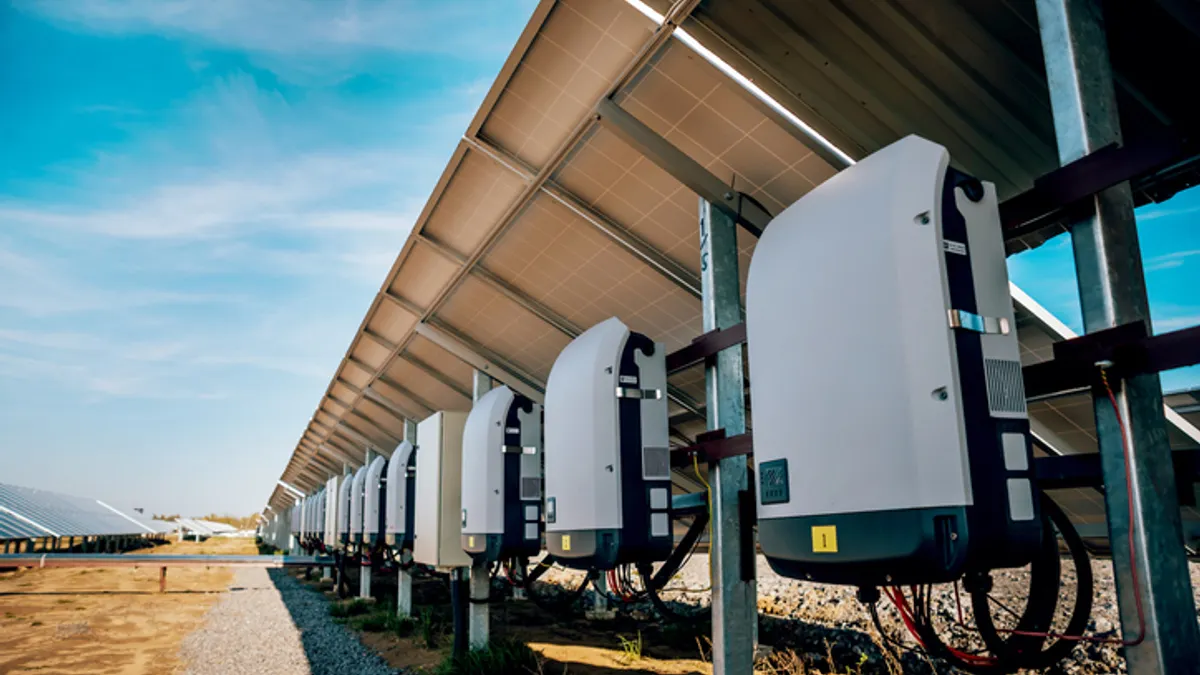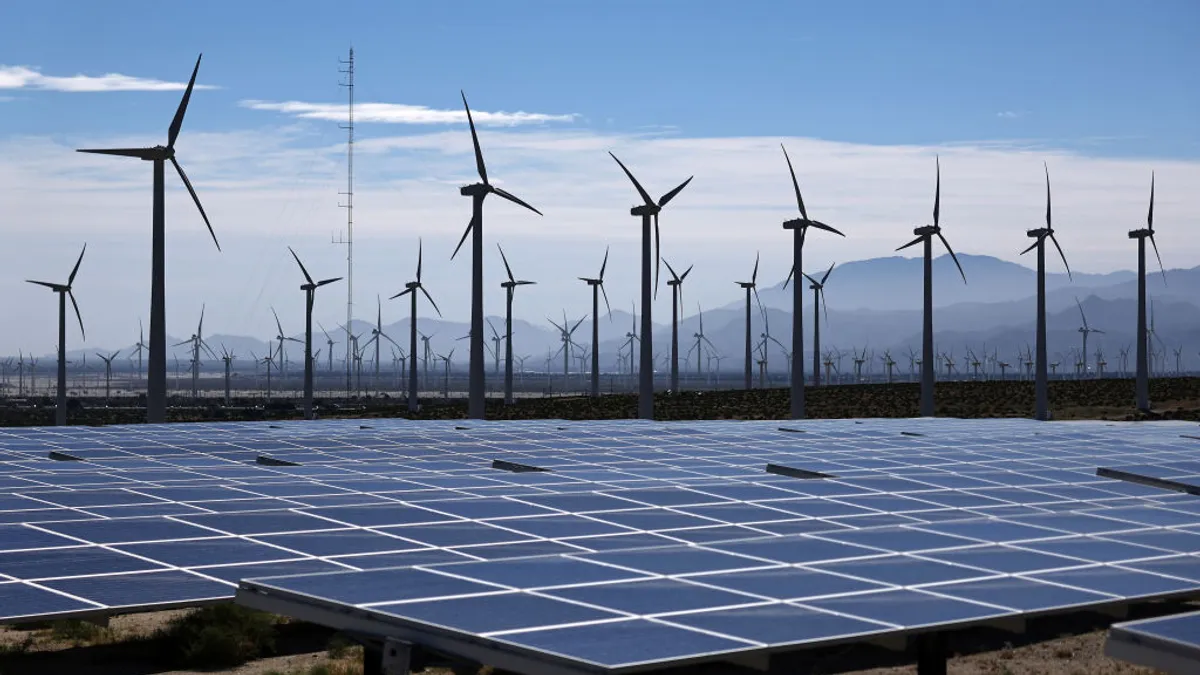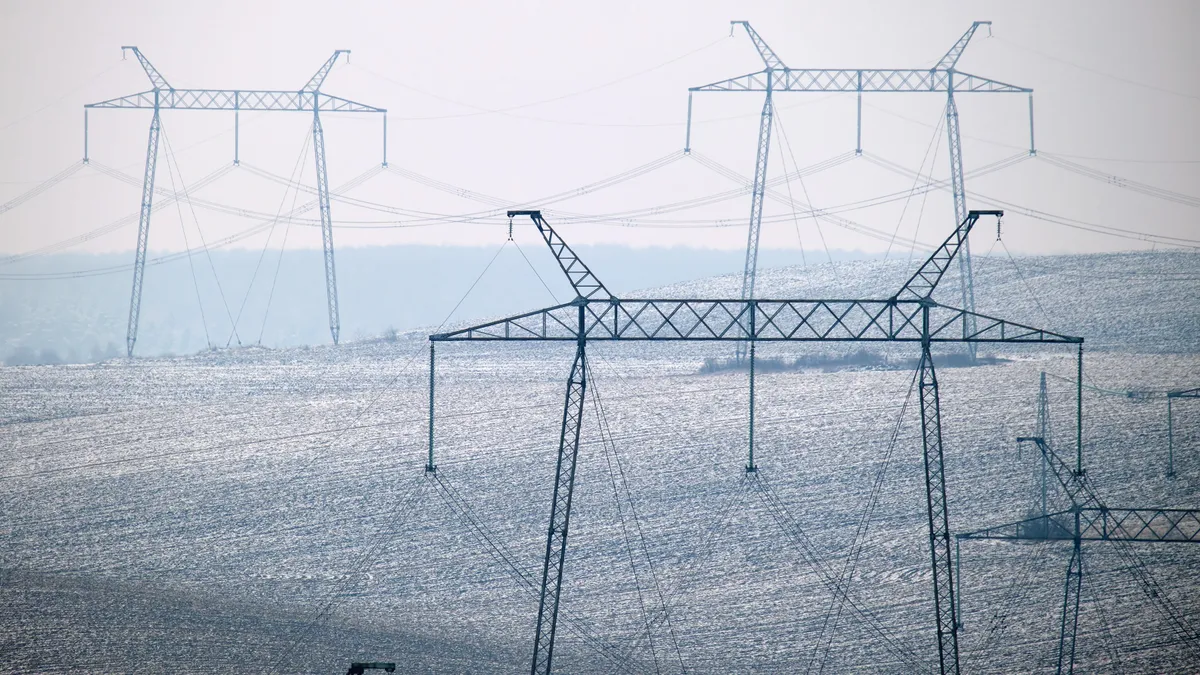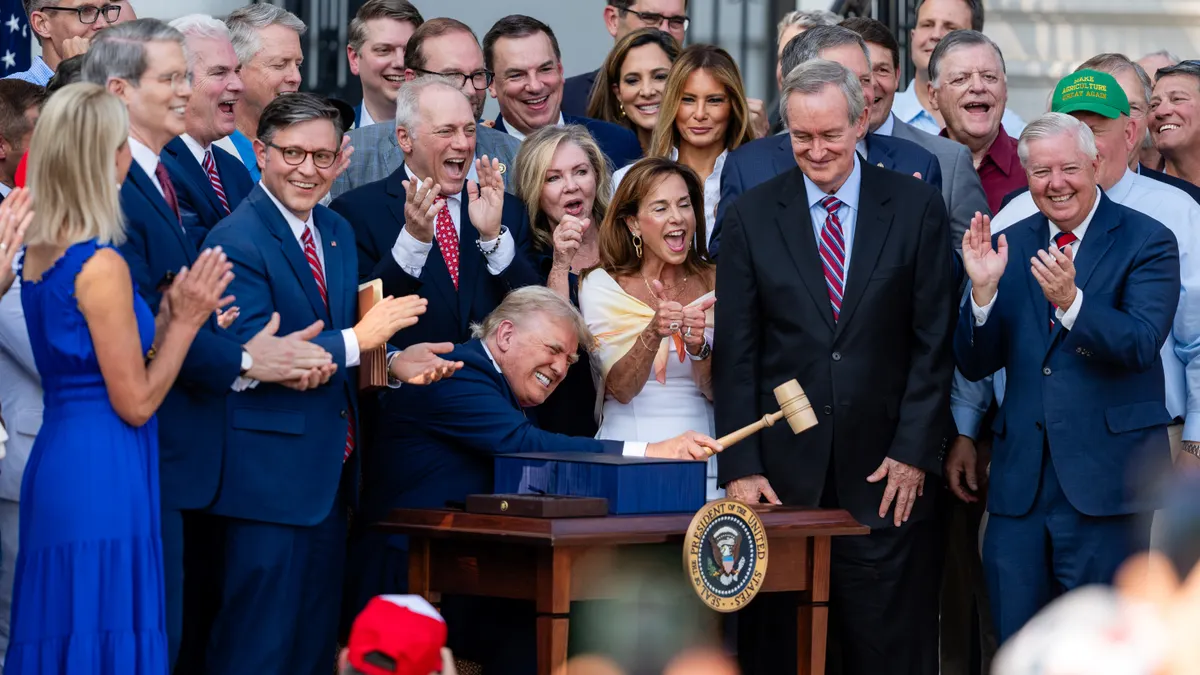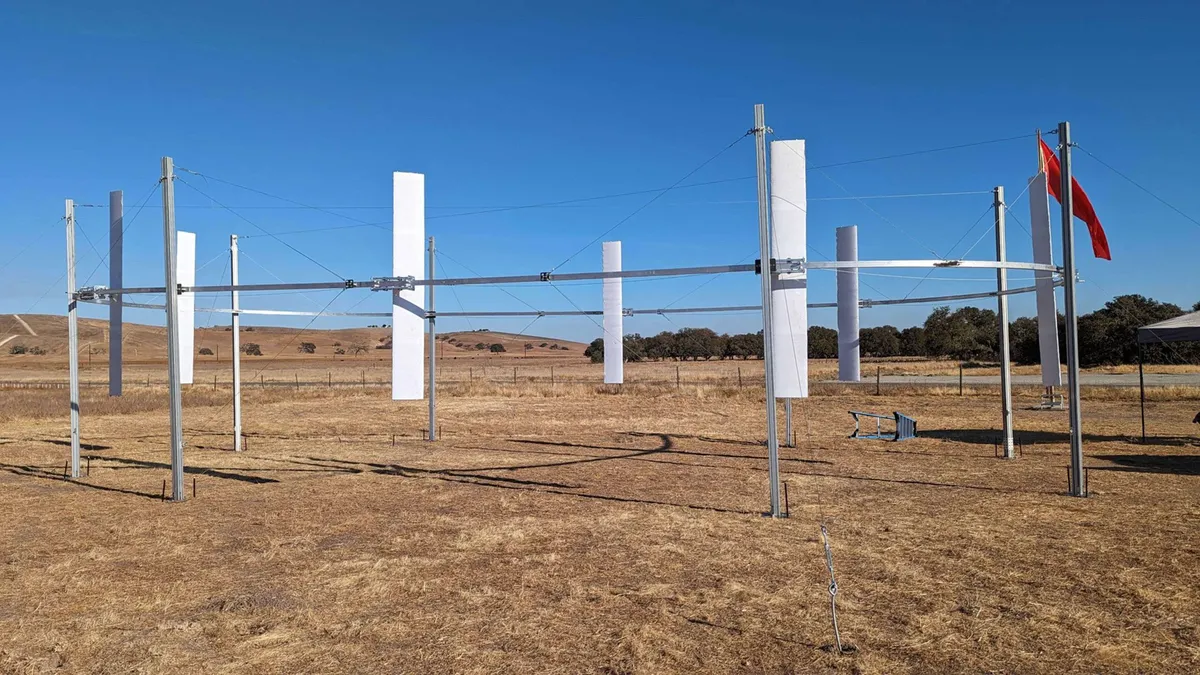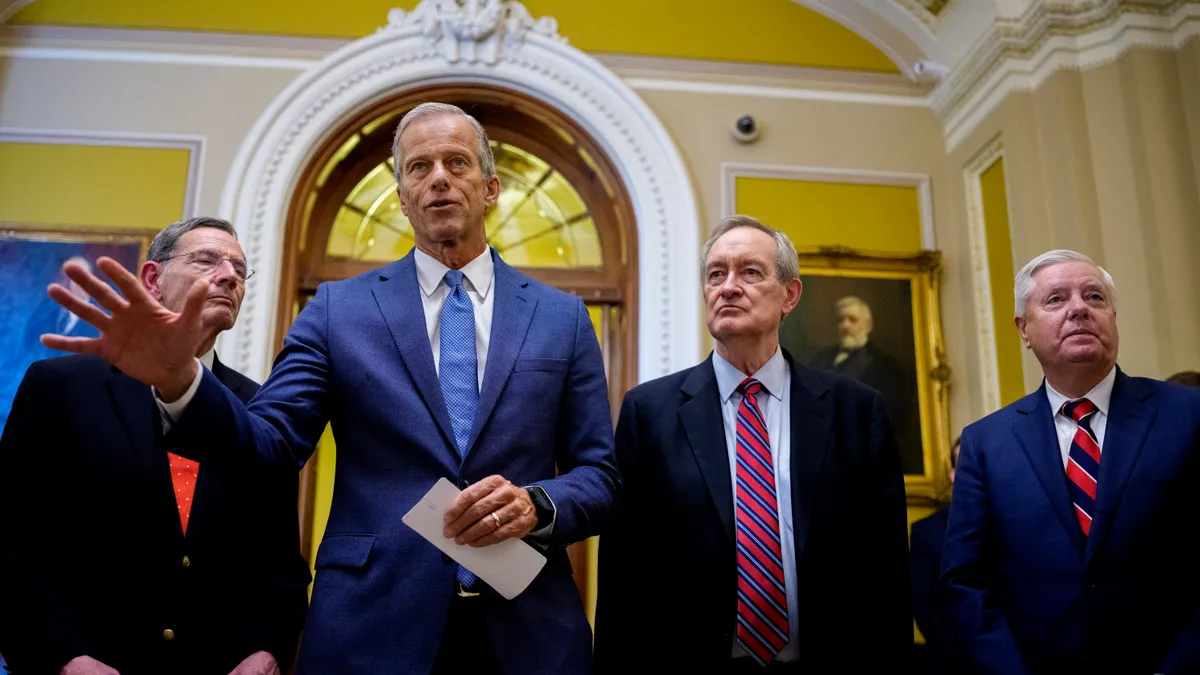Huge financial interests are fist-to-fist in Nevada and the fate of residential electricity customers hangs in the balance.
The fight is over Question 3, which would amend the state constitution, directing the legislature “to minimize regulations on the energy market and eliminate legal energy monopolies.” It is also called the Energy Choice Initiative, because it allows a competitive retail energy market in which customers would choose their electricity provider.
Both sides of the fight agree this change could have a significant impact on the development of Nevada's enormous solar resource. But one side says it will stimulate development and the other side says development will be impeded.
Question 3 is backed by $2.35 million from Sheldon Adelson’s Las Vegas Sands Corp. and $1.7 million from data center provider Switch, according to the Nevada Independent. NV Energy, a subsidiary of Warren Buffett’s Berkshire Hathaway Energy (BHE) and Nevada’s dominant investor-owned electric utility, is Question 3’s leading opponent. It has pledged $30 million to defeat it.
A constitutional amendment in Nevada must be affirmed by voters in two elections. The YES side won in 2016 with 72% of the vote. But voters then were riled by the fight to defend the state’s retail rate net energy metering (NEM) compensation for rooftop solar. And NV Energy did little campaigning against the measure in that election.
This year, the money and leverage of Adeslson and Switch CEO Rob Roy are up against the money and leverage of the Warren Buffet utilities. If Question 3 passes this fall, the legislature will be required to establish a competitive energy market that enables retail electricity providers (REPs) to assume the role now filled by NV Energy.
The YES side says the new system is coming, and the legislature must design a market that protects clean energy policies and keeps rates low. The NO side says competition is likely to work well for large electricity consumers with financial clout but could leave small consumers without protections and propel the state into yet another fight over rooftop solar.
Democratic Senator Pat Spearman, the majority party co-whip, told Utility Dive she is “fairly certain” the “citizen-driven initiative” will pass because “the public wants energy choice to be in the constitution.” But a legislature-led process will put consumer protections in place, she promised.
Democratic Assemblymember Chris Brooks is vice chair of the legislature’s interim energy committee and one of four lawmakers appointed to the Governor's committee on energy choice.
“When voters passed this initiative in 2016, NV Energy was working against the state’s rooftop solar incentive and “consumers did not have a good opinion of the utility,” he told Utility Dive. But the proposed change in regulation could give REPs the option of making NEM harder to access. “Those who fought hardest for rooftop solar may be the ones most in jeopardy if this initiative passes.”
The backstory
The Question 3 fight goes back to 2014, when Switch asked NV Energy to provide it with renewables-generated electricity, Matt Griffin, chair of the Yes on Question 3 campaign, told Utility Dive.
“When the monopoly utility became an obstacle, Switch decided to use the state’s Chapter 704B provision," Griffin said. It allows customers with loads of at least 1 MW to exit the NV Energy system by paying an exit fee.
With the threat of losing its biggest customer on the table, NV Energy met again with Switch, according to an account written by BHE VP Jonathan Weisgall and corroborated by Griffin. The utility, Switch and state regulators reached a deal that provided the data-center operator with 100% solar-generated electricity. A slightly increased electricity rate allowed NV Energy to meet regulatory obligations.
Then Switch decided against paying the higher rate. Instead, it paid the exit fee, and left the system. Las Vegas’s Wynn, MGM and Sands hotels also applied to leave, though Adelson’s Sands balked at the exit fee and remains an NV Energy customer.
About that time, the rooftop solar debate exploded at the Nevada Public Utilities Commission (NPUC) when NV Energy proposed drastically reducing the NEM compensation and the commission approved.
“The solar companies led a ballot measure campaign against that," Griffin said. "The issue became so toxic that the utility had to surrender and, before that fight was over, all three commissioners lost their jobs.”
The result was AB 405, signed into law last June by Republican Governor Brian Sandoval. It almost fully restores NEM.
But things are different now, according to former NPUC commissioner Rose McKinney-James, who says she is neutral on Question 3. Its enormous 2016 margin of victory came “without a $30 million campaign opposing it,” she told Utility Dive. “A lot of voters had the impression they were voting to restore rooftop solar. Now they will be more educated.”
The Question 3 debate
Though the election is more than six months off, stark differences between the opponents are already clear.
The Adelson-backed YES side says “choice states have seen [electricity] prices fall 4.5% against inflation, while monopoly states have seen prices outpace inflation by 8.5%.” The Buffett-backed NO side says that since BHE bought NV Energy, customers have had the second biggest rate decrease of any U.S. utility — rates are “8.8% lower than other Western Mountain states and 17.1% lower than the national average.”
YES proponents say choice will increase demand for in-state renewables and grow Nevada's renewables economy. The NO side says the utility has done that since BHE took over.
YES says “only two principles would be placed into the Nevada Constitution.” The first eliminates “electric generation monopolies in Nevada.” The second requires the legislature “to create an open, competitive energy market by July 1, 2023.”
NO says the initiative already caused Governor Sandoval to veto an increase in the state’s renewables mandate “in the face of evolving energy policy.” And the initiative opens significant potential to undo the hard fought NEM victory, NO adds.
YES says the legislature will put in place “thoughtful re-regulation” with protections for electricity customers and state policies. NO says it will take legislators years to implement the transition to “deregulation,” and there will be extensive litigation along the way.
Are renewables protected?
The NO arguments must be answered by the post-election legislature-led stakeholder process to establish and implement a competitive energy market, Senator Spearman said. “I reject the argument that retail electricity suppliers will not serve net metered customers in the same way they have been served by the utility.”
Assemblyman Brooks is concerned about the initiative’s impact on renewables. “It turns net metering upside down,” he said.
AB 405 reestablished certainty for rooftop solar and guaranteed that net metered customers are part of the entire residential rate class,” Brooks said. “In a competitive retail market, those customers will be a separate rate class, the cost to serve them will go up, and the cost of their electricity will go up.”
The Natural Resources Defense Council (NRDC) was neutral in 2016 and remains neutral, senior scientist Dylan Sullivan told Utility Dive. “Building large-scale renewable energy power plants and developing good programs can be done under either regulatory model.”
"Large-scale renewables generation is the lowest cost energy in the marketplace only through long-term contracts and a deregulated marketplace does not encourage long-term investments."

Chris Brooks
Assemblymember, Nevada Legislature
But the uncertainty created by a potential regulatory change could stop investments in large-scale renewables until it is resolved, he said.
Brooks agreed. “The vote will resolve the uncertainty around energy choice, but it will have a chilling effect on large-scale renewables growth," he said. "Large-scale renewables generation is the lowest cost energy in the marketplace only through long-term contracts and a deregulated marketplace does not encourage long-term investments."
The current uncertainty has stalled procurement at a "horrible time," he added. “We should be taking advantage of the federal tax credits that phase out in the early 2020s.”
The energy choice campaign "has been marketed as a way for voters to get more renewables,” Brooks said. “They may be surprised to find it could do the opposite.”
Sunrun VP of Public Policy Alex McDonough disagreed. “Net metering has been a durable policy alongside energy choice in all but one restructured state and is entirely consistent with retail choice,” he emailed Utility Dive. AB 405 requires that any provider of electric service “be deemed to be a utility” and therefore subject to state policies, including NEM and the renewables mandate.
Re-regulation or deregulation?
“The NO side is wrong to call the ballot initiative deregulation,” Griffin said. “This is thoughtful re-regulation. There is nothing in the initiative that deregulates.”
Former Nevada utility commissioner Rebecca Wagner, now a private regulatory consultant, said that is not an accurate distinction. “Re-regulation is moving from retail competition and deregulation back to traditional cost of service and regulation by the public utilities commission,” she told Utility Dive.
Former commissioner McKinney-James said that whether it is re-regulation or deregulation, the legislature and NPUC must address the unanswered questions, like protections for solar owners and low income customers. “If this is approved by voters, there will be a lot of work to do.”
NRDC’s Sullivan said deregulation has been defined as the two things Question 3 imposes. One is the separation of generation ownership from transmission and distribution ownership. The other is transforming generation into a competitive business.
"To change Nevada’s energy market, choice advocates had to either draft a market structure and have lawmakers impose it or amend the constitution. Statutes can and have been undone, which is why we chose this approach."

Matt Griffin
Chair, Yes on Question 3 campaign
Regardless of the semantics, regulation must include consumer protections, requirements for renewables procurement and “non-discriminatory access,” he added. “Net metering is an example of why legislation must be specific that retail providers cannot discriminate among customers.”
Creating legislative guidance will not be simple and “there could be three legislative sessions before we know with confidence what the market looks like,” Sullivan said.
To accelerate renewables procurement while the federal solar tax credit is available, “solar must be developed now,” he added. “A non-bypassable bill charge to all electricity customers can pay for it, and retail providers can use that solar to comply with the state renewables mandate when the regulations are completed.”
Assemblyman Brooks said a March 29 report on Massachusetts deregulation has increased his concern about Question 3. “The report calls for Massachusetts to return to a regulated utility market for residential ratepayers,” Brooks said.
Tracy Skenandore, spokesperson for the NO side, said the report to the Massachusetts Attorney General (AG) found that, over the two year period of the study, consumers, especially minorities and low income customers, were charged $177 million more than they would have paid through a regulated utility.
“Stronger consumer protection measures are insufficient to transform the competitive supply market from one that causes significant net harm to one that provides net benefits,” the AG concluded. “I strongly recommend that legislators in Massachusetts consider eliminating the electric supply market for individual residential consumers.”
Jon Wellinghoff, a former chair of the Federal Energy Regulatory Commission, is a consultant to the Yes on Question 3 effort. He said the Massachusetts experience will not apply in Nevada.
The incumbent utility in Massachusetts was allowed to compete with REPs and that gave its “monopoly distribution service” undue leverage, Wellinghoff emailed Utility Dive. And Nevada's as yet unwritten market rules will put stronger consumer protection laws in place and provide greater market transparency, he said.
Uncertainty
The draft NPUC report on choice to the Governor’s committee was released April 18. It affirmed the many uncertainties related to the decision Nevada voters will make in November. Among them are the costs to Nevada ratepayers, threats to energy jobs in the state, legal complications that would follow a regulatory change, and the challenges associated with starting an energy market.
"The reasonable conclusion," according to the commission, "is that if the Energy Choice Initiative is approved by voters, how it is implemented, and whether Nevada is willing to invest the necessary time and money, will be the most significant factors contributing to its success or failure."
Wagner, Mckinney-James and Brooks are all concerned about uncertainties facing residential ratepayers, especially low income and rural customers. “When the cost to serve them is not profitable for REPs, “who is going to serve them and at what cost?” Brooks asked.
Griffin responded that the stakeholder process following the initiative's passage will allow "everybody to work together" to answer the remaining questions.
"To change Nevada’s energy market, choice advocates had to either draft a market structure and have lawmakers impose it or amend the constitution," he said. “Statutes can and have been undone, which is why we chose this approach."
Former commissioner McKinney-James said her personal view is that “policy by constitutional amendment is not the best way to do policy." There could be "unintended consequences," she warned. "But the questions can be resolved.”
The legislature’s interim energy committee will consider the NPUC report and recommendations from the Governor’s committee and then, ahead of the November election, propose draft bills, Brooks said.
“That way the public, the press, and other legislators will have a forum to better understand these issues before the vote,” he said. “There was no deliberation before the last vote.”



